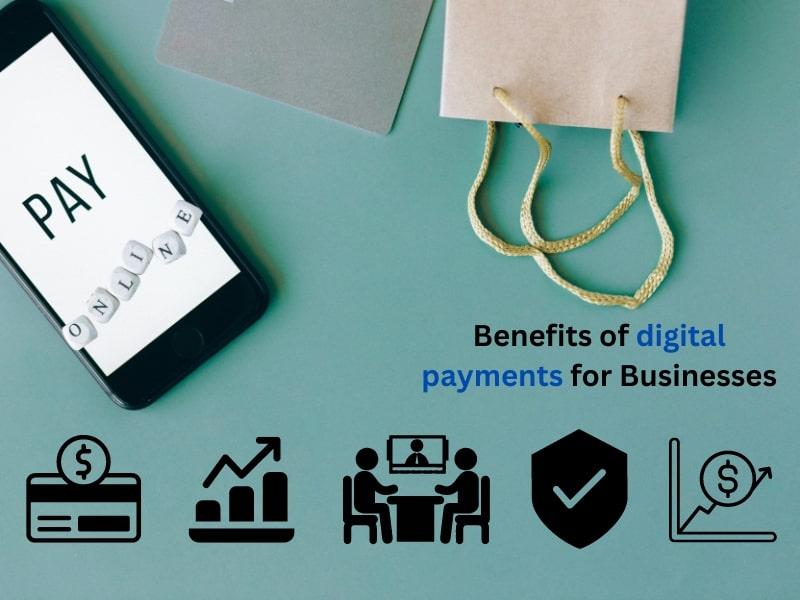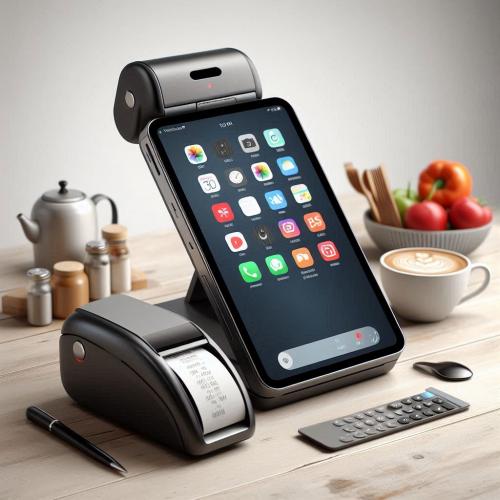Modern payment systems are redefining payment processing
New-age payment systems are redefining the
fundamental business process of monetary transactions in this digital era.
Let’s explore…
As businesses continue to shift gears to stay ahead of the competition in this jet age, versatile and reliable payment systems have become a key component for organisations of all sizes. Even small businesses realise the need for a comprehensive solution that enables them to offer their customers multiple payment modes, thus expanding their reach. Further, these systems can enhance operational efficiency and improve customer happiness.
Let's examine the many payment systems modern
enterprises, including small businesses, can utilise, such as retail
POS systems, QR code
payments, and mobile
POS solutions.
What is a payment system?
Payment systems enable customer-business
transactions by transferring money between parties. They encompass the
technology, software, and mechanisms used to accept, process, and settle
payments, whether via credit card terminals, mobile apps, or internet payment
gateways. Payment systems safeguard and efficiently transfer money, making
daily transactions convenient and reliable.
How can small businesses take
payments?
Small businesses have moved beyond traditional
cash transactions and have embraced relatively modern payment systems. Let’s
look at some of the popular payment systems for small businesses:
Credit or debit card payments:
The most prevalent method of payment
acceptance is credit/debit card processing. This system enables businesses to
process card payments through point-of-sale (POS) terminals, whether in-store
or online. Its wide acceptance means that customers, particularly the elderly,
are comfortable using a familiar payment system.
Key
features
●
Universal acceptance: This payment method is
indispensable for businesses, as the majority of customers possess a credit or
debit card.
●
Secure transactions: Payment Card Industry
Data Security Standard (PCI DSS) sets the security standards for card payments
by ensuring data encryption, among other safety measures.
●
Speed and efficiency: The consumer checkout
experience is enhanced by the near-instantaneous processing of transactions.
Mobile POS systems:
One of the most flexible payment systems for
small businesses, mPOS allows customers to make payments using a mobile device,
such as a smartphone or tablet. thereby enabling them to be more flexible and
portable. You can take your business with you wherever you go with a mPOS and
still provide your customers with the professional, hassle-free payment
experience they seek.
Key
features:
●
Mobility: Mobile POS systems are optimal for
organisations that require adaptability. mPOS provides unparalleled
convenience, whether you are setting up a temporary stall at a weekend market
or providing home delivery services to a customer's doorstep.
●
Affordability: Compared to traditional retail
POS systems, numerous mobile POS solutions have lower setup costs, making them
more cost-effective for small business owners who are operating on a stringent
budget.
●
Improved customer experience: Using mobile
point-of-sale (POS) systems, customers can make payments with just a few taps
on their smartphones, thus significantly reducing wait time at checkout. Faster
payments lead to happier customers.
Retail POS system
Much like card payments, retail POS systems
are tried-and-tested payment systems for small businesses. The integration of
inventory management, customer relationship management (CRM), and extensive
sales reporting into a single platform is what sets a retail point-of-sale
(POS) system apart from a simple payment processing system.
Key
features:
●
Inventory tracking: Monitoring real-time stock
levels facilitates reordering and prevents stockouts.
●
Sales reporting: These systems produce reports
on daily, weekly, and monthly sales to provide valuable insights into the
performance of your business.
●
Customer management: By tracking customer
preferences, you can design customised promotional campaigns that build loyalty.
QR code payments
QR code payments are becoming more prevalent,
particularly in the aftermath of the pandemic. Customers can scan a code and
make a payment directly from their mobile devices without risking any
contact-led health hazards. These systems also offer multi-layered security to
protect customers’ bank and card data.
Key
features:
●
Contactless convenience: Customers do not have
to touch or hand over a card to use a contactless payment device. They only
need to scan the code with their phone to finish the purchase. This provides a
safe environment for making payments.
●
Speed: Transactions happen quickly and easily,
which cuts down on checkout times, especially in high-footfall places like
weekend grocery markets.
●
Security: Payments with QR codes use advanced
technology to safeguard customer information.
Which are the best payment
systems for small businesses?
Small business owners are always scanning the
horizon for solutions that can optimise their investment. Modern payment
systems not only provide a seamless payment platform but also add several
important services to give a holistic experience to small businesses. Based on
their flexibility, affordability, scalability, and security, we have
shortlisted the best payment systems for small business in the UK.
Wonderful
Wonderful presents a wide array of payment
solutions, featuring mobile POS, online payment systems, and QR code payments,
thoughtfully designed for small businesses. Renowned for its intuitive interfaces
and robust security, Wonderful empowers small businesses to thrive by offering
adaptable, cost-effective, and credible payment solutions. It seamlessly
integrates with your legacy system, providing a smooth checkout experience both
in-store and online. Its flat fee model is ideal for small businesses looking
to scale up in the near future.
Square
Square offers multiple alternatives to small
businesses, making them a popular choice among business owners in the UK. Apart
from an affordable mobile POS system, Square offers card readers and robust
payment terminals, enabling merchants to accept card payments both in person
and online. It easily blends with WooCommerce platforms, making it a
comprehensive payment system for businesses of various sizes.
PayPal
PayPal continues to be a prominent player in
the online payment system, catering to both large and small enterprises. It is
a preferred choice for businesses with an online and offline presence. PayPal
provides robust buyer protection, mobile payments, and recurring billing, which
is advantageous for both enterprises and consumers.
Conclusion
Versatility is the name of the game in today’s heightened competition and nuanced consumer behaviour. A suitable payment system for small businesses can help your organisation stay ahead of the curve. By deploying a vast range of payment options like QR code payments, mobile POS, and modern retail POS systems, enterprises are streamlining their operations and adding a different dimension to the customer experience.
With artificial intelligence (AI) and machine
learning (ML) touching various aspects of the retail business, we can expect
more technological advancement in the realm of payment systems in times to
come.







Comments